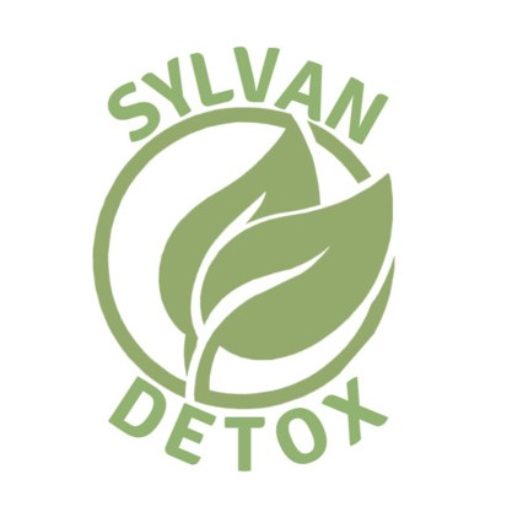It can be challenging to know what to say to someone in rehab for opioids, if you care for them you want to support and encourage them, but without talking down to them. Your relationship with them might even be damaged by the things they have done in order to access drugs. Keep reading for tips to help re-establish a positive connection, and how the language you choose can reduce stigma and contribute to a positive recovery.
If you or a loved one is suffering from any form of addiction or abuse, please call Sylvan Detox at (818) 308-3099.
What Family and Friends Should Know About Rehab
The first and most critical piece of knowledge to keep is addiction is a disease of the brain, it is not a character flaw or a moral failing. If someone you love is living with an addiction, also known as substance use disorder, it’s essential that you learn as much as you can about the science behind addiction. Doing so will help you understand why and what motivates your friend or family member to use drugs, even when the negative consequences are apparent to everyone. It’s also important to understand that addiction can happen to anyone, at any point in their life. If your loved one is in rehab, or going to rehab, chances are they’ve reached a point in the progression of their disease where relationships in all areas of their life have suffered as a result of their drug use. You may be dealing with feelings of anger and betrayal, which are completely valid, and struggling to reconcile the hurt you feel with the knowledge that your loved one is very ill. You may have heard the old adage “Hate the illness and not the person”, this also applies to those recovering from addiction.
Part of the rehab process involves family therapy, which is therapy sessions in which the entire family participates. At Sylvan Detox we model our therapies on evidence-based and trauma-informed methodologies, and this includes the idea that when something happens to one member of a family, it happens to all members of that family. Part of the recovery process will include you being able to speak in a guided session about how your loved ones’ drug use has affected you. Our therapists hold a minimum of a graduate degree in their respective fields and are experts at guiding families through recovery.
The other crucial piece of information to hold on to is that recovery is a process, it’s not a one-and-done. Expect your loved one to relapse, and know that they can come back to recovery. In fact, most people recovering from a substance use disorder relapse, often multiple times. It’s imperative for you to not lose hope if your loved one relapses, instead connect them with the resources they need to succeed.
Effects of Addiction to Opioids
The effects of prolonged opioid use on the body and mind aren’t pretty, you may already be aware that an addicted brain causes behavioral changes if your family member or friend has been acting differently. It’s true, imaging from the brains of people with substance use disorders shows changes in the areas that control decision-making, judgment, memory, and behavior control. Maybe their grades start slipping, or they are skipping work or stealing money. Behavioral changes are directly linked to a changing brain, one that is being remodeled by addiction.
What you may not know, however, is that being addicted to opioids means that withdrawal symptoms are excruciating. And cravings for the drug can be so powerful they block out the ability to concentrate on anything other than getting more opioids. It also increases the tolerance to the drug and provides diminishing returns on the euphoria, or high, it provides. This means your loved one has to use more and more to achieve the same effect, increasing the risk of overdose. Overdose deaths kill more people than cancer, guns, and car crashes combined.
A Timeline of the Drug Rehab Process
The length of time a person spends in rehab is entirely dependent on them as an individual, their needs, and their history. Most people who are addicted to opioids in any form must begin rehab with a medically supervised detox process, which will have them spending days and nights in our facility, receiving 24/7 medical and emotional support from our highly skilled staff. Some substances, including opioids, are particularly unpleasant to withdraw from, sometimes with dangerous or life-threatening side effects. Our doctors will prescribe medications to alleviate the worst of the withdrawal symptoms, allowing someone to detox from opioid use with relative comfort and ease.
After this process is finished, usually within 7 to 10 days, the therapeutic portion of rehab will begin. This may last anywhere from 30 to 90 days, depending on the needs of an individual. Generally, someone healing from opioid addiction is encouraged to spend as much time as possible in treatment, as while the physical effects of withdrawal are over the emotional effects can last for weeks or months. This happens because over time your brain loses the ability to feel good without the drug, and has to relearn how to release dopamine on its own.
3 Things to Say to Someone in Rehab
Embracing your loved one’s journey to recovery can be as simple as the words below
- “I am here for you”. Even though your loved one may be going away for treatment, letting them know that you’re there to help will have a pronounced, positive effect on their mood.
- “I’m proud of you”. Admitting you have a problem, and seeking out help to change is courageous. Let your family member know you recognize this, and that you care.
- “I believe in you”. Recovering from addiction means fostering a person’s own internal sense of hope, and knowing that others believe in them may give someone a reason to believe in themself.
It’s also important to use person-first language when speaking about substance use disorders to reduce the stigma surrounding addiction. Stigma is often what prevents people from seeking help in the first place.
3 Things to Avoid Saying to Someone in Rehab
On the other hand, people undergoing medical treatment generally don’t benefit from the following statements
- “Rehab is for addicts, do you even need to go?” When we use person-first language we put the person before the illness. Calling someone an addict instead of a person with an addiction dehumanizes them, and questioning their need for treatment can undermine their success.
- “Have you tried xxx? It worked for so and so” While alternative therapies are beneficial when offered alongside medical care, it is unhelpful to suggest therapy or treatment options based on anecdote rather than evidence.
- “Just stop doing drugs” or any other form of “Suck it up, buttercup” is blatantly unhelpful, and also insensitive. Nobody with an ounce of humanity would tell someone in treatment for cancer to simply just stop having cancer, and addiction is a disease of the mind as cancer is a disease of the body.
Sylvan Detox: A Place for Recovery
If your loved one is undergoing rehab for opioid use they are not alone in their battle with substance use disorder. Over 20 million Americans are currently living with a substance use disorder, and only 1 in 10 ever receive treatment for it. This means that if someone you love is in rehab they are doing better than 90% of people who never receive the support they need. Our staff at Sylvan detox truly cares about the success of our patients and their families. Our small 6-bed facility will never feel like a hospital, and our patients will never feel like just a number. If you or someone you love is living with an addiction to opioids reach out to us, and begin the path to recovery.

